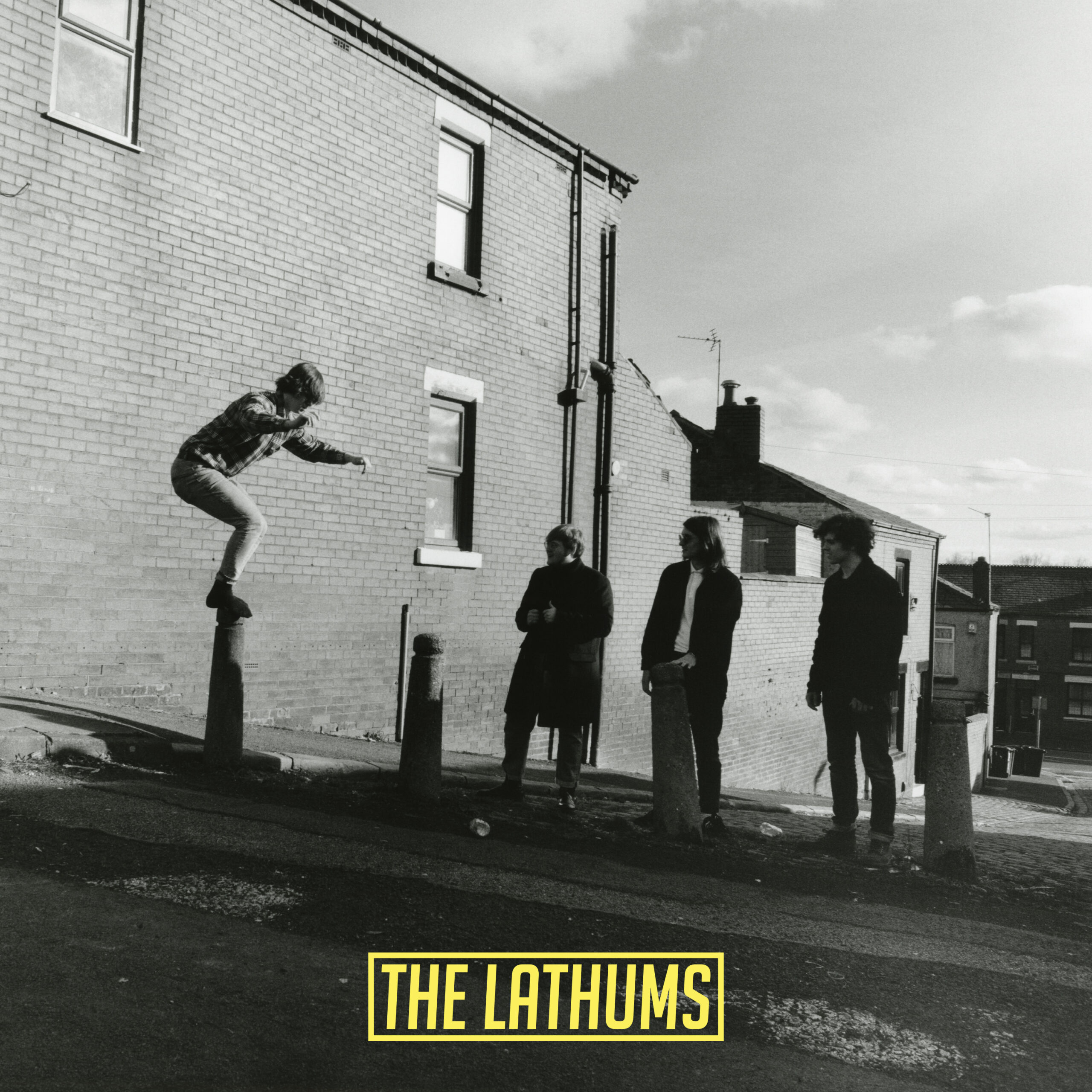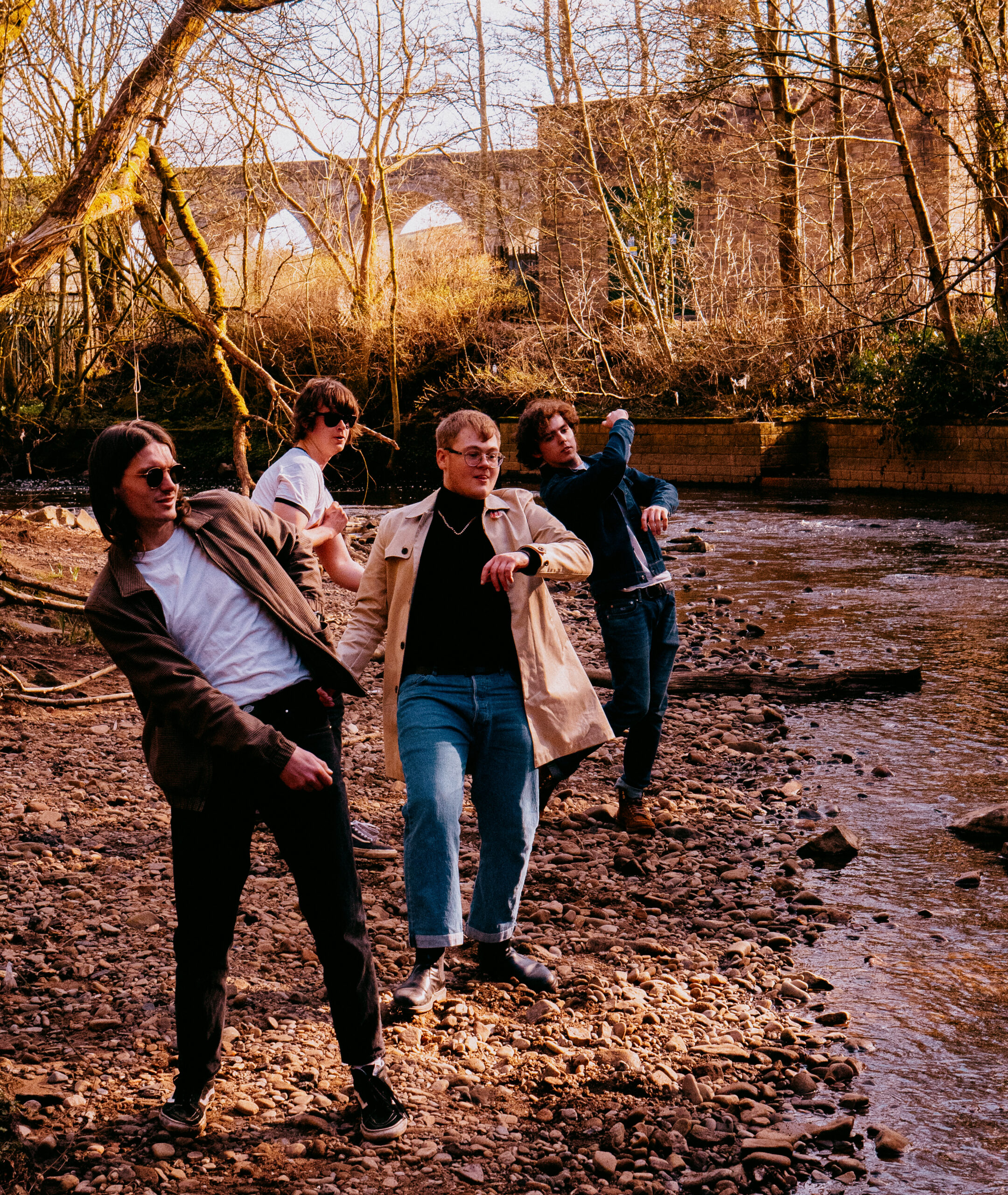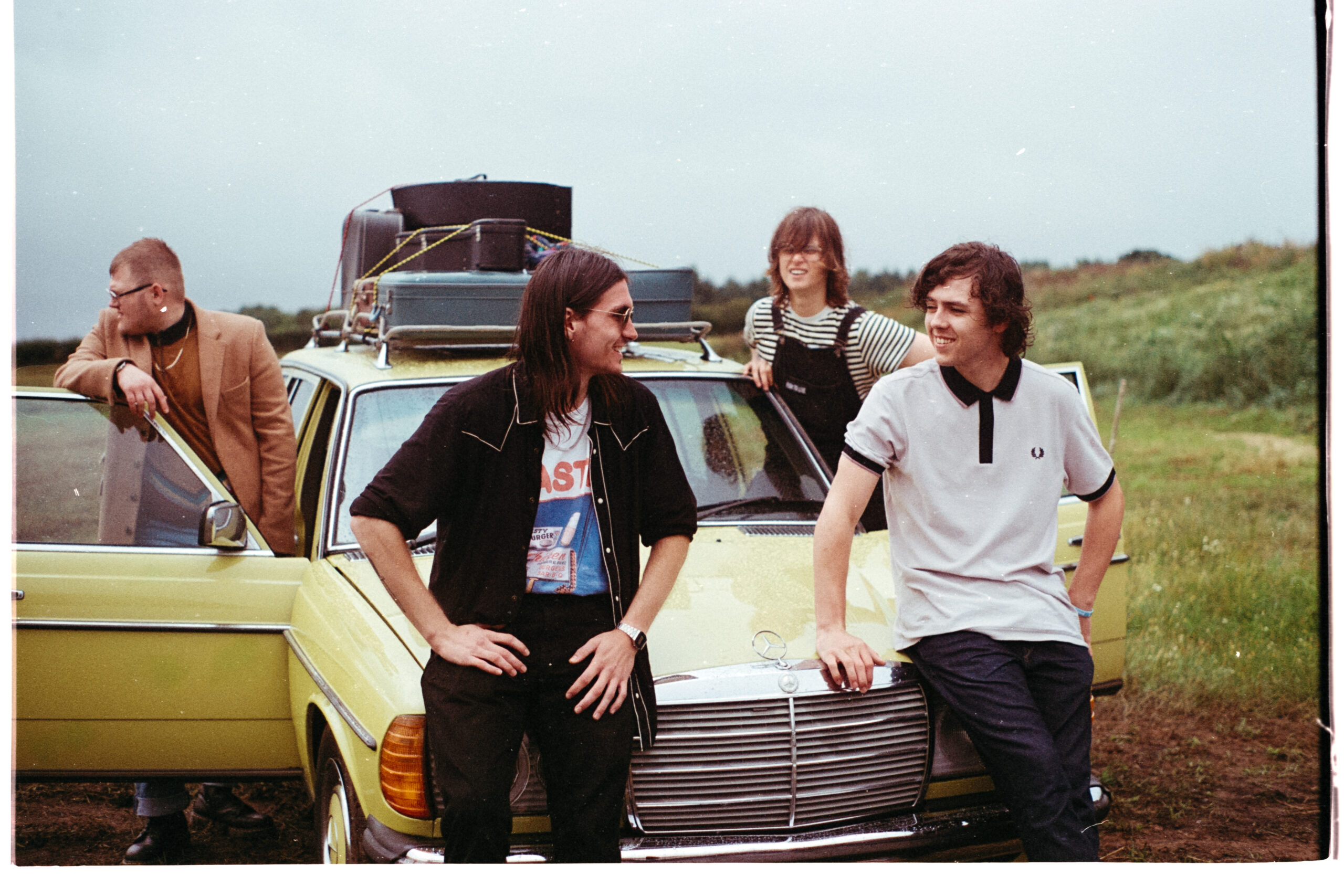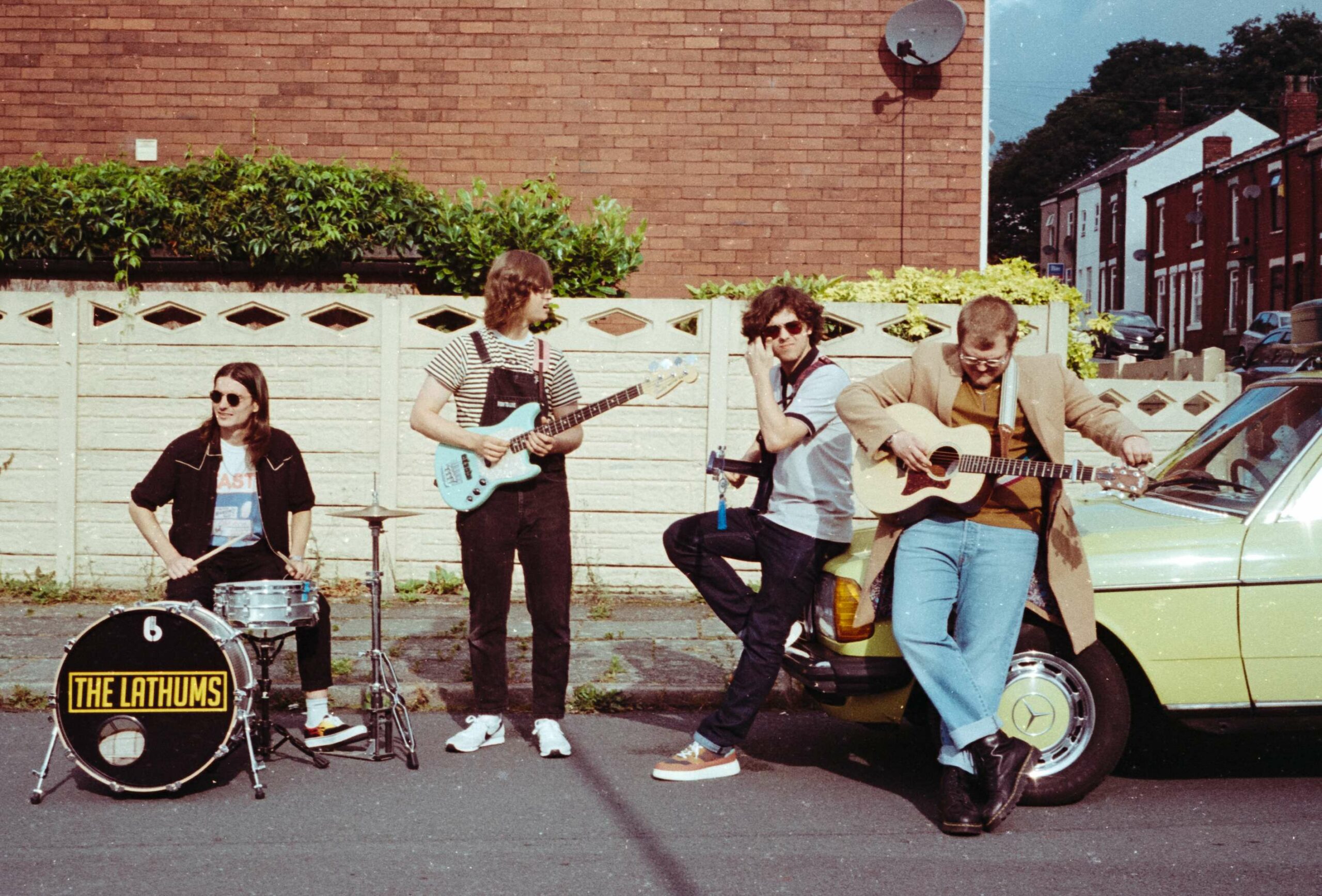Im Norden Englands läuft nichts rund. Politische Entscheidungen in Westminster begünstigen zu selten von Arbeitern bevölkerte Industriegebiete. Dieser Zustand hält sich seit Jahrzehnten. Um der Tristesse zu entgehen, sucht man als Bürger da oben Halt im Pop und gründet eine Band. Alex Moore hat das vor knapp drei Jahren getan. Mal eben so hat er seinen Kumpels an einer Musikschule in Wigan seine Songs präsentiert. Gitarrist Scott Concepción, Bassist Johnny Cunliffe und Drummer Ryan Durrans waren sofort begeistert und gründeten mit ihm The Lathums.
Wenn man diesen vier Newcomern zuhört, kreisen die Gedanken um The Smiths und The Coral. Beide Bands sind Vorbilder. So kommt es nicht überraschend, dass James Skelly, Sänger von The Coral, das Debütalbum von The Lathums produziert hat. Auf How Beautiful Life Can Be schleudert uns Alex eine lebensbejahend Melodie nach der anderen um die Ohren. Mit ihnen fühlt sich der plagende Quatsch gleich weniger gravierend an. Die Band sagt: „This is for everyone, this is for the people that were told they weren’t good enough to do what they love. This is for the people that feel they’re outcasts, this is for the people that feel like they’re alone, this is for you, you’re never alone when we’re around.“ Das erinnert dann schon sehr an den Spirit, der im berühmten Vereinslied des Liverpool F.C. zum Ausdruck kommt: You‘ll never walk alone.
Die Leute auf der Insel wissen nach mehreren Singles und EPs, mit wem sie es zu tun haben. Sie beförderten How Beautiful Life Can Be an die Spitze der Album-Charts – vor Public Service Broadcasting, Drake, Olivia Rodrigo und Lil Nas X. Alex ließ uns am Montag nach Veröffentlichung des Debütalbums per Zoom wissen, wie er die Dinge einschätzt.
 Hi Alex. Where are you at the moment, what are you doing today?
Hi Alex. Where are you at the moment, what are you doing today?
I‘m in the van at the moment, we are going to play Gorilla in Manchester as the main band today. We‘ve got a matinee show and then a show later on at night. We‘ve also got a signing at 4pm, it‘s all happening today.
Let‘s go back a little. I read that the four of you have met at a music college in Wigan to form a band about three years ago. What was the initial idea?
I think we fell into it. We just enjoyed playing music, we enjoyed playing it together. It felt right when I showed the rest of the lads the songs I‘ve been writing. They got straight on to it and were playing along, it felt natural.
Are The Lathums your first band or do you have previous attempts?
No, it‘s my first band. I used to play on my own, now The Lathums are my main thing.
Do you reckon that music technique is important to the the band or do you rely on an attitude?
We‘re just us, we don‘t have any kind of persona to show to people. We‘re just music lovers, just human beings, just trying to have good time and enjoy life. Hopefully we‘ll bring some happiness to people.
Who were the musicians who completely blew your mind when you first to listened to them?
The artist that springs to mind that really made a big impact on me would be Jake Bugg and his first album. I really related to him as a person and the songs he was singing about. It was the first time that I thought to myself that I want to do that. I want to be on those stages in front of all those people singing to them.
What was it specifically you liked about Jake compared to other musicians?
It‘s very raw and emotional. I mean, he could play all of his songs just himself and a guitar, and it still gives you the same feeling and conveys the same message. It was real music too. I have listened to his new album, he‘s doing his own thing now and it‘s good. He‘s not 17 years old anymore. he changed and learned an own style. He‘s doing well for himself.

Your album How Beautiful Life Can Be is not produced by him, but by James Skelly and Chris Taylor. How important are they for the development of the band?
They‘ve helped us massively. As musicians we‘re a lot tighter in the studio. Before we met James and Chris we were just very much a live band, it was pretty much just plug your guitar in, turn it on and try to make some sounds and that. But they‘ve developed us to see and hear things in different ways. James spoke to me about structuring the songs in different ways than I was used to. I‘ve just let everything out hoping that something stuck or was something worthwhile.
The song I See Your Ghost is on the album. It reminds me a lot of The Coral, they tend to love otherworldly things in all sorts of forms. You come from Wigan they are from Hoylake. Would you say it‘s important to the band to bring back the spirit of northern English pop to people?
Yeah, especially since we‘re from Wigan. It‘s such a small town and we‘ve not really had much. The Verve have been the last thing that springs to mind. We still feel we‘ve got a good kind of ethos in the north, people are friendly and help each other out. We‘re open people and wear our hearts on the sleeve. That‘s where I feel at home and where I feel comfortable. I want to share that with people.
 You‘re also fans of local football club Wigan Athletic F.C. You‘ve helped people at the club in their attempts to get out of administration by putting on a raffle. Tell us about it.
You‘re also fans of local football club Wigan Athletic F.C. You‘ve helped people at the club in their attempts to get out of administration by putting on a raffle. Tell us about it.
Northern Soul was massive in Wigan, it‘s part of the heritage really. There was a song called The Snake by Al Wilson, it was very popular. We went into Parr Street studios and recorded it and it got pressed on to just the one single on vinyl and we raffled it off… (connection lost, manager James calls on iPhone, as we can read on the screen) … (Alex coming back) hey apologies about that…haha….so we raffled the one copy off just to raise as much money as we possibly could. It was won by a big Wilson fan, a Bolton Wanderers fan. It wasn‘t a massive amount of money, but it was good to be part of it and help out. The community in Wigan and the football club and the people that live in Wigan, they‘re all very supportive of us. It was good to give something back and to something that people really love, which is the football club.
How important is Northern Soul in general for you?
After we‘ve recorded The Snake it was getting that respect I wasn‘t really used to. I wasn‘t really brought up on Northern Soul to be fair. I was used to Motown a bit and to Jimmy Ruffin. It‘s got a lot of real energy and emotion to it. I‘m hoping to write a couple of Motown hits, but I‘ll have to get back to you on that one. (laughs)
The lyrics are important to you as well. You‘ve covered Up The Junction by Squeeze and have written a song called The Great Escape. Both are very wordy. Is it your intention to deliver more than just an average line to a pop song?
Definitely. I really enjoy pushing myself and I‘ve always loved words. I love how you can manipulate words to suit your own needs and make lovely sentences and express things to people that you usually wouldn‘t be able to use. I love wordplay. I want to bring in something real and different, more than run-of-the-mill, bog-standard lyrics. I want to make people think, I want to push it as far as I possibly can.
The first song on the album is Circles Of Faith, in which you‘re asking: Where, who, what am I? You seem to be in a confused place. Is it a comment on the state we often are in, when things aren‘t quite normal?
Definitely that‘s a factor. For me there were so many things going on, like you say, I was confused. I didn‘t really know who I was or what my purpose was, but I just thought the world will carry on turning regardless of what‘s happening to us or in our lives. It doesn‘t matter, the world carries on. Things aren‘t always amazing, they‘re not great. But you have to accept those things and move on and look for the positives in life.

How Beautiful Life Can Be is the title track, you‘ve released it as a single in the summer. It‘s got an uplifting quality you need in difficult times. Do you trust your abilities you can make the world better as a singer, when everything around you is a bit annoying?
That‘s become more present as time‘s come on. At first I was writing these songs for myself to help me, but I‘ve learned that I can actually help people with the words I‘m saying to them. It pushes me to write even more relatable things and try to find things I can connect people with. That‘s become a lot more current.
And it seems that people understand you, judging by the response you get at gigs. Since you‘ve struggled to find purpose in life before, do you see the fan reaction as vindicating?
Yeah, it gives me purpose. It‘s not that I want accolades or people‘s attention, I‘m not that kind of person. It‘s the acceptance from so many human beings, that listen to my words and make it personal to them and then sing it back to me. It‘s the most humbling feeling in the world. I truly believe we‘ve got something special, because of the amount of passion people have about the band and the songs. I can feel that they know I‘m being truthful to them and I‘m not playing a role or anything. Just the connection we‘re having is on another level. I truly believe we‘ve got the best connection with a fanbase in the world.
 Scott, the guitarist, probably likes the song Artificial Screens a lot, because here he‘s got the chance to place one of his guitar solos.
Scott, the guitarist, probably likes the song Artificial Screens a lot, because here he‘s got the chance to place one of his guitar solos.
(laughs) Yeah, he loves it. It‘s like the ending of the show, we let him let loose, let him wander off and shred, as he says. It‘s got a special place for us all, because it was the first song I ever showed the band. Instantly we had this connection and started playing it together and it felt right.
The song is about people looking at screens wherever they are. Did you feel a complaint was necessary?
Technology is good to a point. We‘ve benefitted a lot from social media, and that wouldn‘t have happened unless we have the devices. But I think it‘s been taken way too far, people aren‘t living in the physical world, there‘s an artificial world where people live on Twitter. I feel we‘re losing the connection by not looking into someone‘s eyes and speak to them and learn about them. That‘s how I want to live. When you speak to someone in person you can feel the emotions and the energy, you can pick up on it. Over the phone it‘s different. That‘s why I missed the live gigs so much, because we had all this emotion online, people saying all these lovely things about us, but we had no place to make it physical. Obviously now that‘s changed, we can get that feeling and emotion again. It makes everything so much better.
Your album ends with the song Redemption Of Sonic Beauty, which thematically reminds me of I Am The Resurrection by The Stone Roses.
(laughs) I just wanted to show that there‘s still people out there that really care about music, who want to give people the best that they possibly can give them. The opening line is „we all speak in tongues“. We all have a language, I speak English and you speak German. But there‘s another language to connect myself and you, and that would be music. You might not understand the words of the song, but we‘re still able to connect over it because of how it makes us feel. That‘s what I wanted to do with The Redemption Of Sonic Beauty. I wanted to build a connection. I hope people appreciate that.










